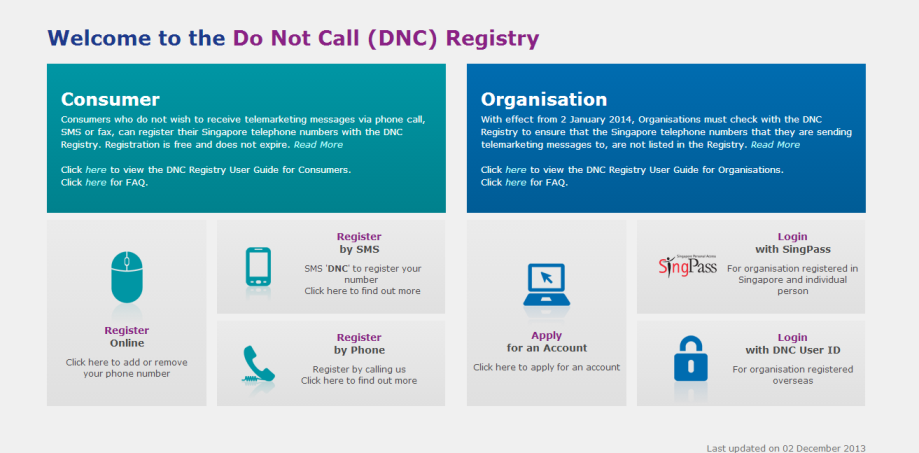Starting today, Singaporeans can register their numbers in the Do-Not-Call (DNC) Registry to prevent unsolicited telemarketing messages from businesses.
Cold calls have long been the ire of many people and the DNC Registry is seen by many as a welcome development.
Under the Personal Data Protection Act (PDPA), any person found to send telemarketing messages to a Singapore number registered under the DNC Registry is liable to a fine of up to $10,000.
As of 6pm today, the Personal Data Protection Commission (PDPC) of Singapore, has registered more than 67,000 unique numbers.
However, there are still some uncertainties as to whether this measure is effective at stopping unsolicited calls.
Another concern: What are the loopholes which some companies will try to circumvent?
1. What constitutes a marketing/sales call?
One possible scenario is that banks may start masking sales calls as account updates to its customers. Do customers have any recourse to this? Does the DNC Registry cover calls which veer from one subject towards a sales motive?
2. How do I deal with numbers which are still blocked/private?
Do consumers have any recourse if they are receiving telemarketing calls from numbers which are blocked or private? If they report these calls to the authorities, will the police step in to track the numbers? Do consumers have to start recording their phone calls to gather evidence against such callers?
3. If I signed a contract for a service which includes giving consent to marketing calls, can I rescind the consent without voiding the contract?
There are many service agreements out there which give companies certain rights over the use of its consumers’ telephone numbers. For example, if you were to sign a contract with a telco for a new mobile phone and subscription, and one of the clauses in the agreement includes giving the telco a right to call you for promotions, will you be able to ask the telco to stop calling you without breaching the terms of the contract?
4. I have no idea where I gave consent. How do I stop the marketing companies from calling?
Many people give out their personal details to data-mining companies unwittingly when they take part in lucky draws which require them to give out their details. How can consumers protect themselves from such tactics, beyond just not taking part in lucky draws or reading the fine print very carefully?
[Editor: This was also brought up by MPs Patrick Tay, Lim Biow Chuan and NMP R Dhinakaran in the 2nd reading of the Bill].
MCI Minister's reply on the Bill last October was that if the organisation had clearly stated on the lucky draw form that the personal data provided would be used for the purposes of contacting the individual to market certain products, then the organisation would be able to use it for those purposes.
5. How can a registry be more considerate of the needs of the vulnerable members of our society?
While most Singaporeans use their mobile phones as their main tool of communications, there are still many people, mostly the elderly, who rely on landlines at home. What recourse do they have if they do not have caller IDs which identify specific telemarketing callers?
Moreover, should the elderly be inconvenienced with the requirement of an opt-out registration? Telemarketers will end up targeting this group after the more savvy Singaporeans had submitted their “opt-out” applications.
Top photo from here.
If you like what you read, follow us on Facebook, Instagram, Twitter and Telegram to get the latest updates.
